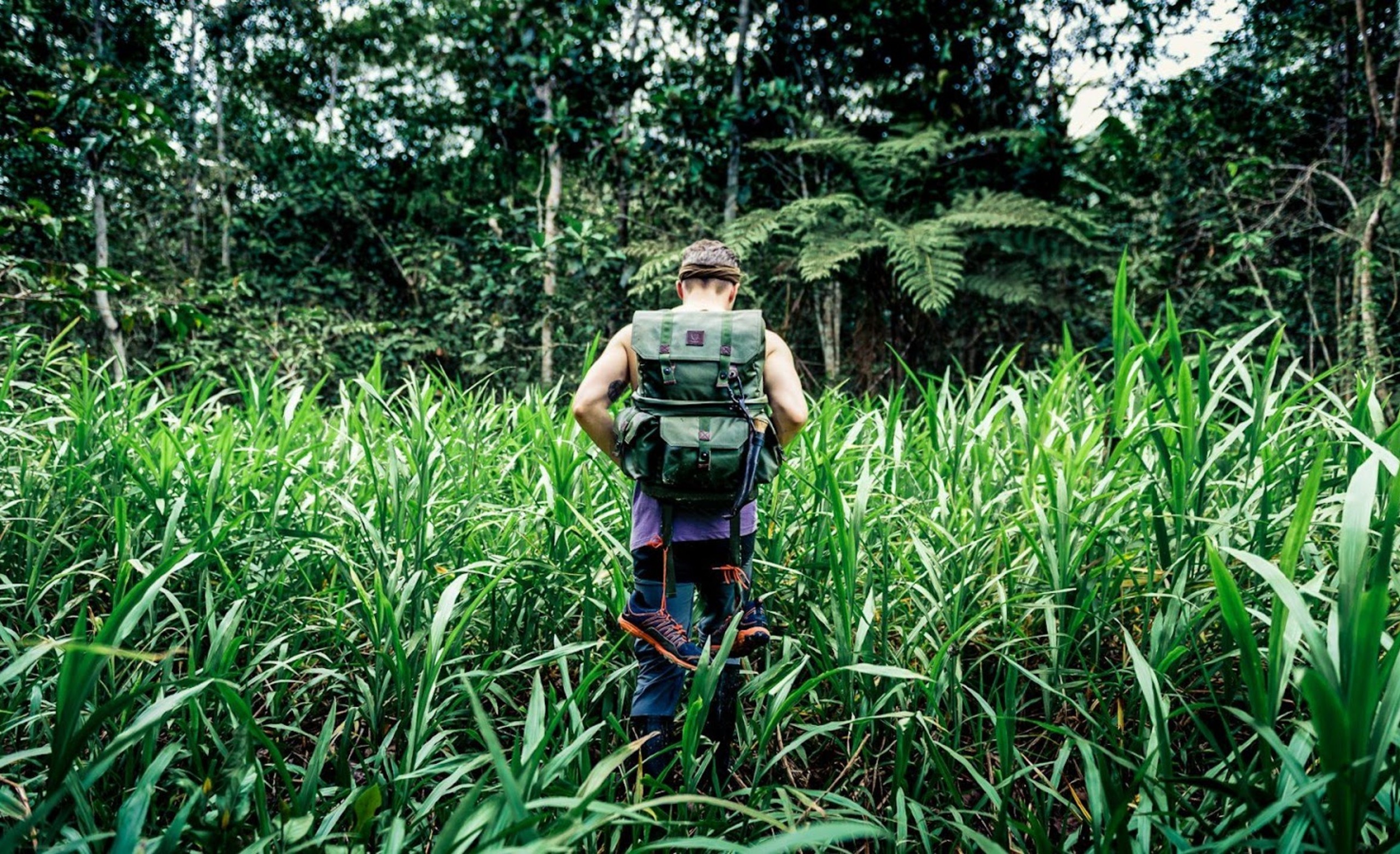
How To Survive In A Jungle
Welcome to the ultimate guide on how to survive in a jungle! Imagine lush green canopies, exotic wildlife, and the serenade of chirping birds – the jungle is a mesmerizing yet unforgiving environment. In this blog post, we will delve into the art of surviving in the heart of nature’s untamed beauty.
Whether you’re an adventurous soul or just preparing for a potential outdoor escapade, these tips will equip you with essential skills to conquer the wild unknown. So grab your machete and let’s explore how to thrive in the jungle!
Understanding the Environment and Its Dangers
Imagine yourself stepping into the lush, dense jungle – a world teeming with life but also hiding numerous dangers beneath its beauty. The environment is a chaotic symphony of sights and sounds, where every rustle in the foliage could signal either prey or predator lurking nearby.
The jungle’s humidity can be suffocating, making it hard to breathe while navigating through thick undergrowth that seems to close in around you. Heavy rainfall can quickly turn small streams into raging rivers, cutting off paths and making survival even more challenging.
Venomous snakes blend seamlessly into the surroundings, ready to strike at any misstep. Insects buzz incessantly, their bites causing irritation or even infection if left untreated. And then there are larger predators like big cats and crocodiles that command respect from anyone venturing into their territory.
Understanding these environmental dangers is crucial for anyone hoping to survive in the jungle. It requires keen observation skills, quick reflexes, and a deep respect for nature’s power – only then can one hope to navigate this untamed wilderness unscathed.
Essential Skills for Surviving in the Jungle
In the jungle, having essential survival skills can mean the difference between life and death. One of the most crucial skills is knowing how to make a fire. Fire provides warmth, cooks food, purifies water, and keeps predators away.
Another vital skill is building a shelter to protect yourself from the elements and wildlife. Learn how to construct a sturdy shelter using materials found in the jungle like branches and leaves. It should keep you dry during rainstorms and provide insulation at night.
Navigating through dense foliage requires knowledge of basic orienteering techniques. Pay attention to landmarks, sun position, and natural signs to avoid getting lost in the vast wilderness.
First aid skills are also essential for treating injuries or illnesses that may occur while surviving in the jungle. Carry a basic first aid kit with supplies like bandages, antiseptic wipes, and pain relievers.
Remember that mental preparedness is just as important as physical fitness when facing challenges in the jungle. Stay calm under pressure, think rationally, and adapt quickly to changing circumstances for better chances of survival.
Building Shelter and Finding Water
Building a shelter in the jungle is crucial for protection against the elements and wildlife. Look for a sturdy tree to lean branches against, creating a simple A-frame structure. Use large leaves or palm fronds as roofing material to keep out rain.
Finding water in the jungle can be challenging but essential for survival. Look for signs of water such as animal tracks or lush vegetation that may indicate a water source nearby. Streams and rivers are good places to find drinkable water, but always purify it before drinking by boiling or using purification tablets.
Remember to prioritize your shelter first before searching for water, as dehydration can quickly become a serious threat in the jungle. Stay calm and focused while building your shelter and locating water sources to ensure your safety in this demanding environment.
Foraging for Food and Avoiding Poisonous Plants
Venturing into the jungle means being surrounded by an abundance of plant life, some of which can provide sustenance while others pose a threat. Foraging for food in the jungle requires knowledge and caution to distinguish between edible plants and poisonous ones.
It’s crucial to educate yourself on the local flora before consuming anything you find. Look for familiar fruits like bananas or coconuts, as they are often safe options. Avoid mushrooms unless you are absolutely certain they are not toxic.
When in doubt, remember the rule “leaves of three, let them be.” This phrase serves as a reminder to steer clear of plants with clusters of three leaves like poison ivy or poison oak. Be cautious when handling unknown vegetation and always wash your hands after touching any plant.
Foraging for food in the jungle can be both rewarding and risky. Take your time to identify safe options and avoid anything that looks suspicious or unfamiliar. Prioritize your safety above all else when searching for sustenance amidst the lush wilderness.
Navigating and Communicating in the Jungle
Navigating in the jungle can be a daunting task, with dense vegetation and lack of clear paths. It’s crucial to stay oriented by using landmarks like rivers or prominent trees. Carry a compass and learn how to read maps for better navigation.
Communication is key in survival situations. Make sure to establish signals with your group, such as whistles or hand gestures, to communicate without words. Creating noise can also alert rescuers if needed.
Learning basic survival phrases in local languages can help you connect with indigenous communities or seek help if necessary. Always approach locals respectfully and be open to learning from their jungle survival techniques.
Stay aware of your surroundings at all times, listening for animal calls that could indicate danger nearby. Trust your instincts but remain calm when faced with unexpected challenges while navigating through the unpredictable jungle terrain.
Dealing with Wildlife Encounters
Encountering wildlife in the jungle can be both exhilarating and potentially dangerous. Remember, you are entering their territory, so respect their space and observe from a safe distance.
If you come face to face with a wild animal, stay calm and try not to startle it. Make yourself appear larger by raising your arms or opening your jacket. Slowly back away while maintaining eye contact.
Avoid sudden movements or loud noises that may agitate the animal. Do not run as this could trigger a chase response from predators like big cats.
Carry noise-making devices like whistles or bells to scare off curious animals without causing harm. Keep food stored securely to prevent attracting unwanted attention from wildlife.
Be mindful of snakes and insects as well; watch where you step and avoid tall grass or rocky areas where they may hide. Stay alert at all times and trust your instincts when navigating through the jungle’s diverse ecosystem.
Mental Preparedness and Physical Fitness
When it comes to surviving in the jungle, mental preparedness is just as crucial as physical fitness. The unpredictable and challenging environment of the jungle can test your limits both mentally and physically.
Staying focused, positive, and adaptable is key to overcoming any obstacles you may face. It’s essential to keep a clear mind, assess situations calmly, and make rational decisions even under pressure.
Physical fitness plays a significant role in your ability to navigate through dense vegetation, climb trees for shelter or food, and endure long treks in search of help or resources. Prioritize building strength, endurance, and flexibility before venturing into the jungle.
Remember that staying mentally sharp and physically fit will not only increase your chances of survival but also boost your overall resilience in the face of adversity.
Tips for Long-Term Survival in the Jungle
When it comes to long-term survival in the jungle, sustainability is key. It’s essential to conserve your resources and ration them wisely. Make sure you are constantly looking for new sources of food and water while being mindful not to exhaust any one area.
Creating a routine can help maintain a sense of normalcy amidst the chaos of the jungle. Establishing daily tasks like collecting firewood, checking traps, or scouting for edible plants can provide structure and purpose to your days.
Building strong relationships with fellow survivors can boost morale and increase your chances of survival. Working together on tasks such as constructing shelters or hunting for food promotes teamwork and camaraderie.
Stay adaptable and open-minded when faced with challenges in the jungle. Being flexible in your approach can help you overcome obstacles more effectively. Remember, resilience is key when it comes to long-term survival in this unforgiving environment.
By implementing these tips for long-term survival in the jungle, you’ll be better equipped to endure the harsh conditions and increase your chances of making it out alive.
Conclusion
In the end, surviving in a jungle is no easy feat. It requires a combination of knowledge, skills, and mental fortitude. By understanding the environment and its dangers, mastering essential survival skills, and staying prepared both mentally and physically, you can increase your chances of making it out alive.
Remember to always prioritize building shelter and finding water first, as these are crucial for your immediate survival. Foraging for food should be done cautiously to avoid consuming poisonous plants or fruits. Navigating through the dense vegetation and communicating with your team members effectively are key aspects of staying safe in the jungle.
Encountering wildlife can be intimidating but remaining calm and knowing how to react can make all the difference. Mental preparedness is just as important as physical fitness when it comes to surviving in harsh conditions like the jungle.
By following these tips for long-term survival in the jungle, you will be better equipped to handle any challenges that come your way. Stay vigilant, stay resourceful, and most importantly, stay positive – because ultimately, your mindset could be what determines whether you survive or not.
So go ahead – embrace the wilderness around you with courage and determination. Who knows? You might just surprise yourself with how resilient you truly are when put to the test in nature’s ultimate playground – the jungle!






